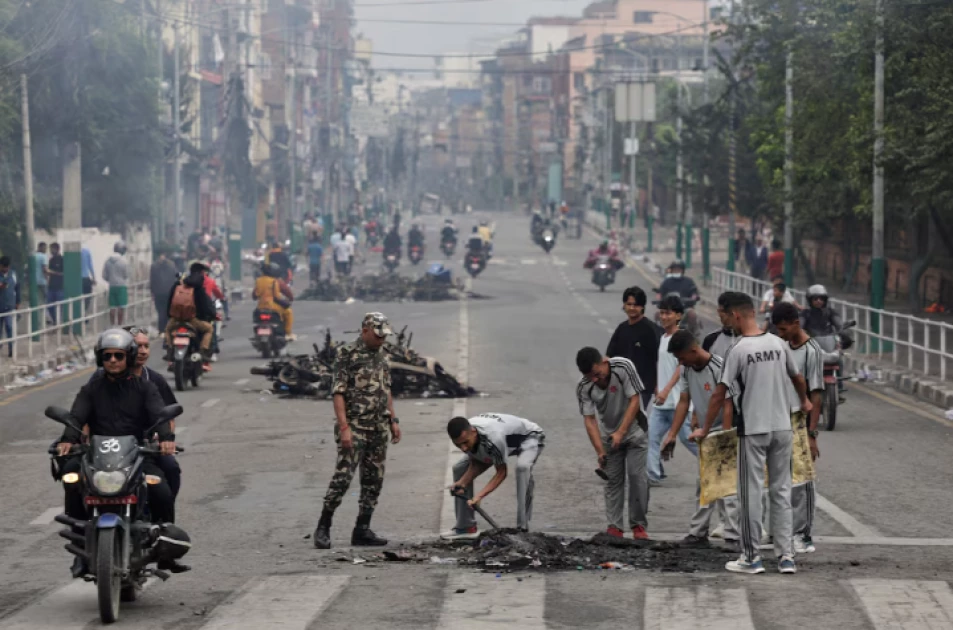Deadly Protests Shake Kathmandu
Nepal’s capital, Kathmandu, is under tight security after two days of violent anti-corruption protests. At least 19 people died during clashes with police, prompting Prime Minister K.P. Sharma Oli to resign.
Armed soldiers now guard the parliament building, which was set on fire by angry protesters. Streets are deserted under an indefinite curfew, with shops and markets closed. Burnt vehicles and debris still cover parts of the city.
Social Media Ban Sparks Anger
The unrest began after the government announced a social media ban last week. Although the decision was quickly reversed, frustration had already spread. Police used rubber bullets and tear gas to disperse crowds, but violence escalated.
Several government offices, the Supreme Court, and even Oli’s private home were attacked. Kathmandu’s main airport also shut down temporarily, disrupting flights.
Army Steps In
Army spokesperson Raja Ram Basnet said the focus is on protecting lives and property. Prohibitory orders remain in place until Thursday morning. Armored vehicles patrol the capital while army firefighters continue to put out fires.
Calls for Political Change
Pressure is mounting for fresh elections. Former Supreme Court judge Balaram K.C. urged protesters to form a negotiation team. He also called for parliament to be dissolved and a caretaker government to take over.
Most demonstrators are young people, frustrated by corruption and the lack of job opportunities. Millions of Nepalis work abroad, mainly in construction in Malaysia, the Middle East, and South Korea, to support their families.
International Concern
India is closely monitoring the situation. Prime Minister Narendra Modi appealed for calm, stressing that “Nepal’s stability, peace, and prosperity are of utmost importance.”
Since the monarchy was abolished in 2008, Nepal has faced repeated political and economic crises. The latest protests highlight the deep anger among citizens demanding reform and accountability.

